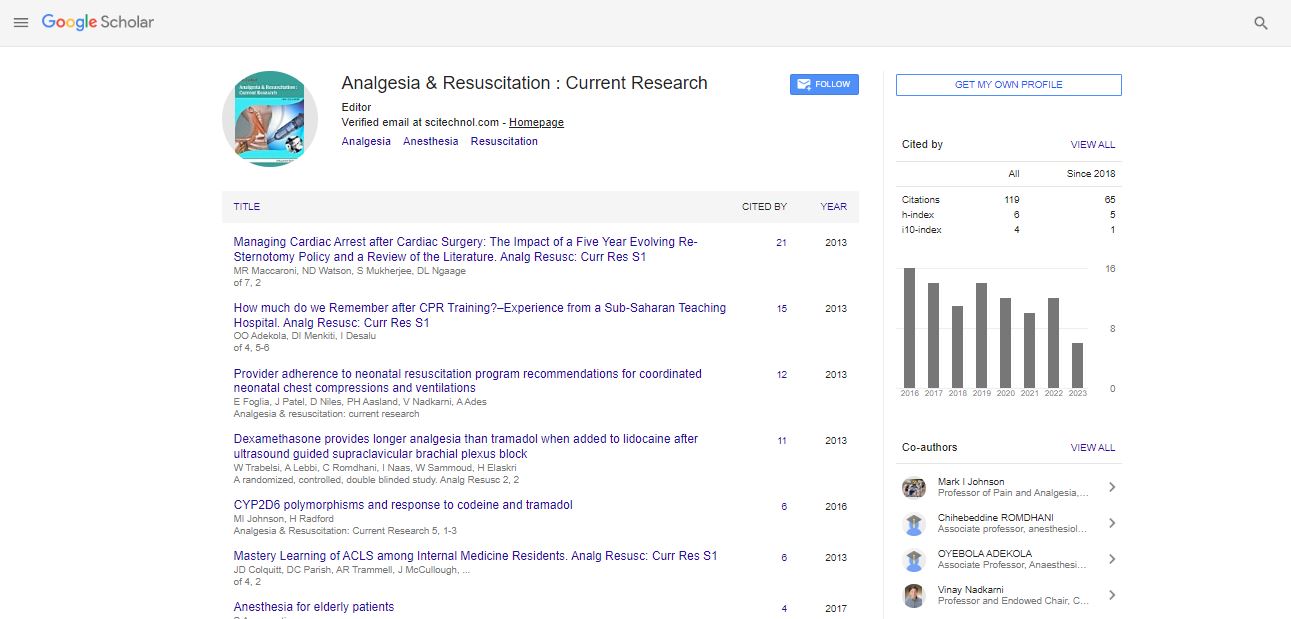Pain in healthy newborns and in newborns with developmental problems (Down syndrome)
Maria Jose Aguilar Cordero
University of Granada, Spain
: Analg Resusc: Curr Res
Abstract
Background: Newborn babies are often subjected to invasive and painful medical procedures. This happens even more frequently when they require hospitalization. Aim: The order of this paper is evaluate pain in healthy newborn babies and in newborn babies with Down Syndrome (DS). Design and Settings: We performed a prospective cohort study in the neonatal service of the San Cecilio University Hospital in Granada (Spain) from January 2008 to September 2012. Subjects: The universe of our study was made up of a study group of 20 newborn babies with Down syndrome and a control group of 20 normal newborn babies. All of these infants were hospitalized, thus had to undergo painful medical procedures. Methods: The variables studied were basal recovery time (as reflected in crying and the normalization of biological constants), number of punctures, oxygen saturation, heartbeat, blood pressure, response to skin-to-skin contact, and gestational age. The evaluation was performed during blood extraction, vein canalization, and heel puncture. Results: The significant differences in the basal recovery time for normal babies and babies with Down syndromeindicated that the babies with DS were slower to express pain, and when they did, their response was not as clearly defined as that of normal babies. The oxygen saturation in babies with Down syndrome after the puncture was found to be significantly lower than that of healthy babies (p<0.001). Conclusions: The results of this study revealed that babies with Down syndrome were not as quick to perceive pain after a puncture. However, when pain was finally perceived, it persisted for a longer time. This situation should be taken into account in the design of pharmacological and non-pharmacological therapies.
 Spanish
Spanish  Chinese
Chinese  Russian
Russian  German
German  French
French  Japanese
Japanese  Portuguese
Portuguese  Hindi
Hindi 
